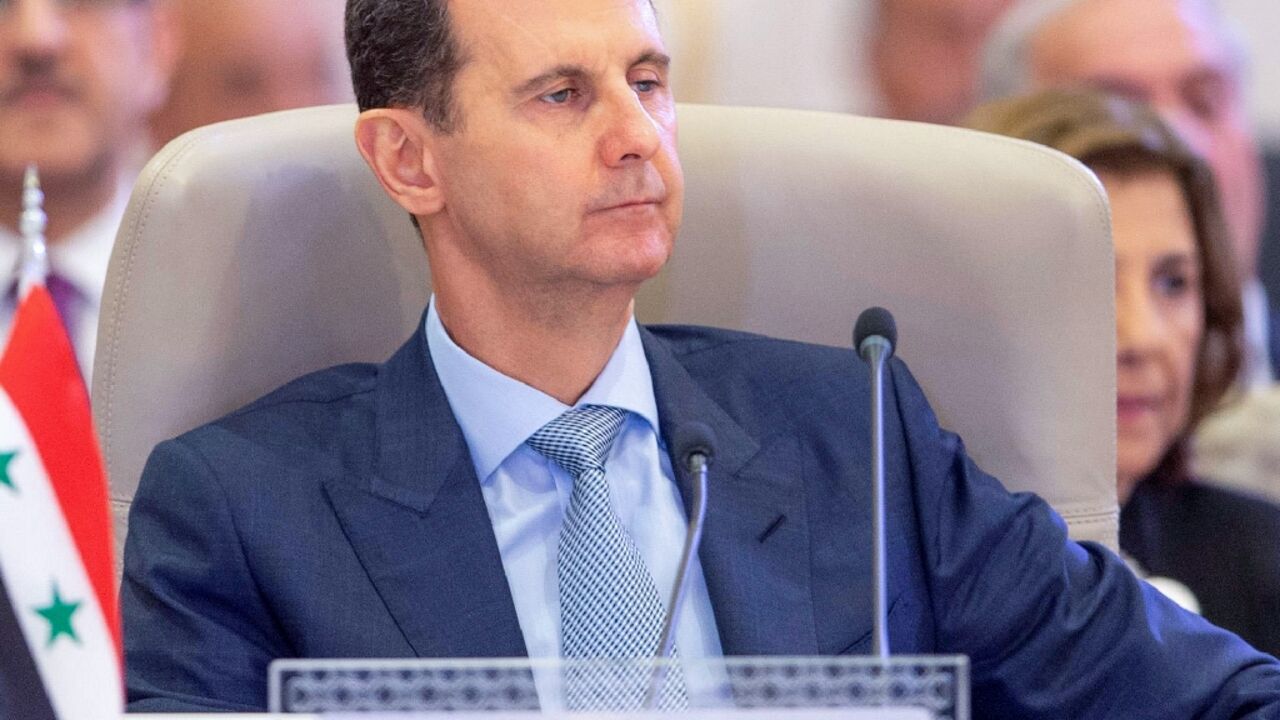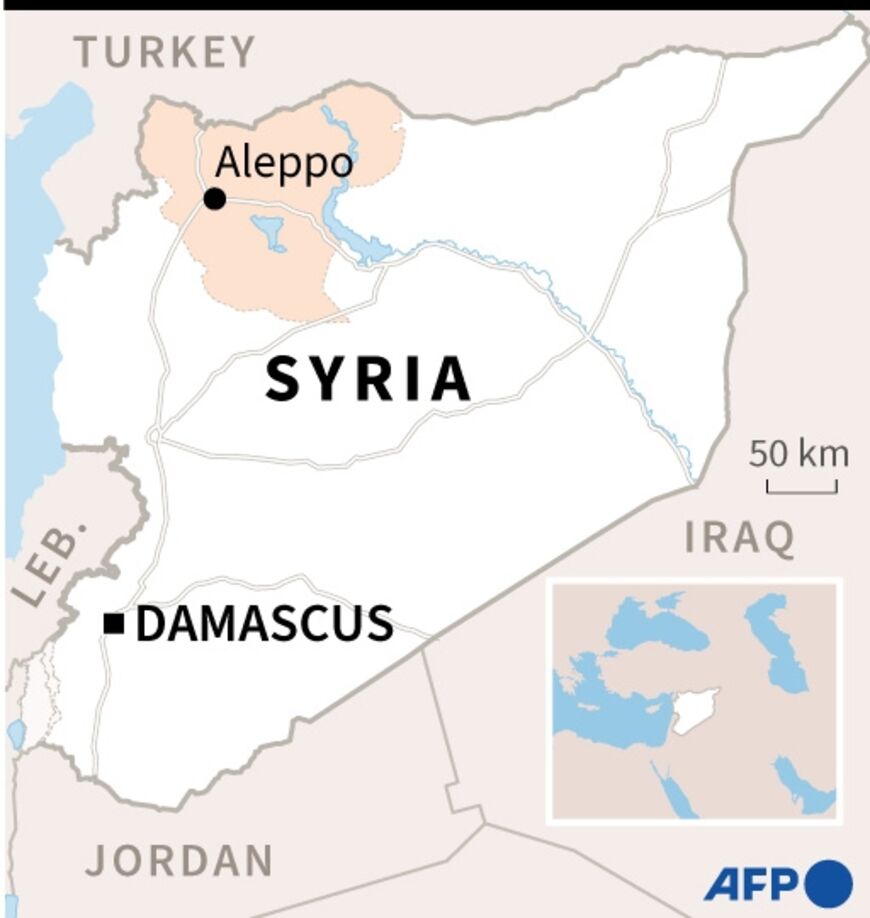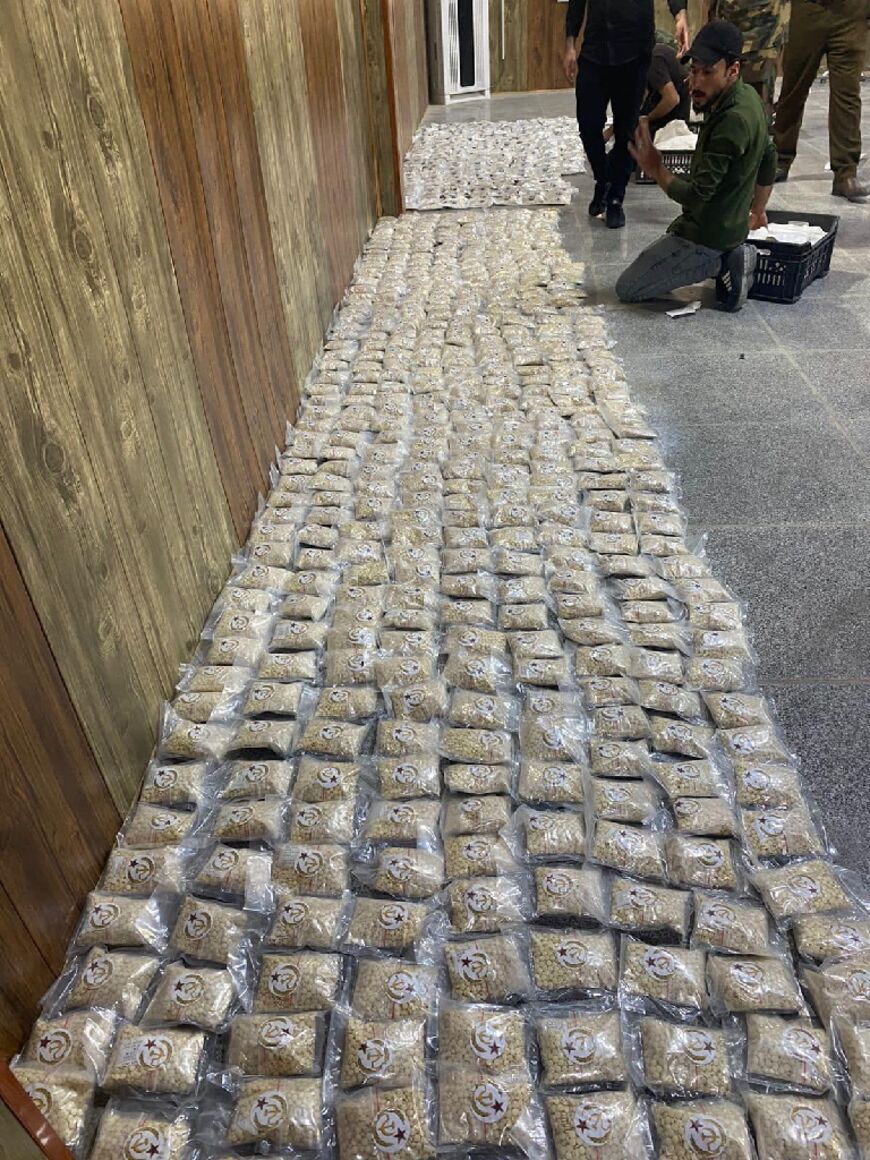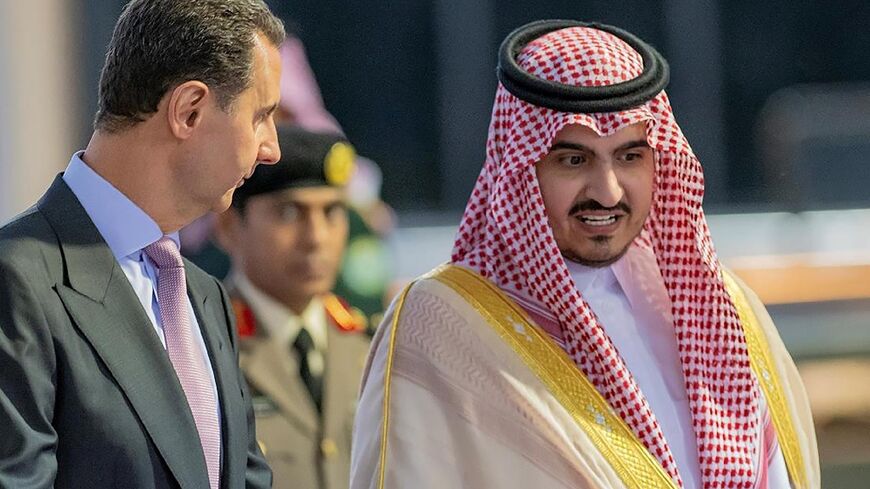What's next for Syria after Assad's regional comeback?

Syrian President Bashar al-Assad has returned to the Arab fold after more than a decade of isolation, eyeing reconstruction and aid from formers foes as the conflict grinds on.
Since the brutal civil war broke out in 2011, it has killed more than 500,000 people, displaced millions and devastated much of the country's infrastructure and industry.
AFP looks at Assad's regional rehabilitation and what it means for Syria's rebels, its refugees, reconstruction and the roaring illegal trade in the stimulant drug captagon.
- How have Arab nations mended ties? -
Several Arab capitals cut ties with Assad after the Damascus regime's repression of anti-government protests sparked war in 2011, with some supporting the opposition instead.
States that once bet on Assad's demise have warmed to him as he clung to power and clawed back territory with Iranian and Russian support.
"There is relief on the Syrian street in general, and great optimism about the future," said Bassam Abu Abdallah, who heads the Damascus Centre for Strategic Research and is close to the government.
"We have turned a new page."
Arab outreach peaked after a deadly February 6 earthquake struck Syria and Turkey, and gained further momentum as regional rivals Saudi Arabia and Iran patched up bilateral ties the following month.
On Friday, a triumphant Assad made his first appearance at an Arab League summit since Syria was suspended at the start of the war.
Rebel-backer Turkey, which controls stretches of Syria's north, has also made overtures to Assad.
Lina Khatib, director of the Middle East Institute at SOAS University of London, said Assad saw the Arab League return "as recognition that he has won the war and as formal acceptance of his legitimacy as president".
- Is Syria any closer to peace? -
Large parts of Syria's north remain outside government control after 12 years of war that pulled in foreign powers and global jihadists.
Though the frontlines have mostly quietened in recent years, Russian, Iranian, Turkish and US forces are still present in Syria.
Several rounds of United Nations-brokered talks in Geneva between the government and opposition groups, aimed at forging a new constitution, have failed, with no political solution in sight.
The opposition and rebels' role in determining the country's political future has vastly shrunk, said Khatib.
"There is now even less hope that the UN-led peace process is going to be resurrected and result in meaningful political transition," she added.
Nicholas Heras of the New Lines Institute for Strategy and Policy said "the Arab League has moved on from the Syrian opposition and is seeking to rebalance regional dynamics toward equilibrium between Iran and Arab states that compete with Iran".
- What will happen to the refugees? -
Neighbouring countries host some 5.5 million Syrian refugees, according to the UN.
"Arab states should provide aid and assistance, particularly on the issue of the return of the displaced", Abu Abdallah said, noting the need for "funding and infrastructure".
Assad is hoping wealthy Gulf states could help fund reconstruction, although Western sanctions are likely to deter investment and broader international funding remains elusive without a UN-backed political settlement.
Khatib expressed scepticism about refugee returns, saying the regime was "neither willing nor able to deliver meaningfully" on issues like housing, employment and safety.
"Damascus will likely flaunt refugee return as a card to attract funding for Assad and his profiteers," she said.
- Will Assad curb the captagon trade? -
Several Arab countries are seeking increased security cooperation with Syria, which has effectively turned into a narco-state with a $10 billion captagon industry.
Saudi Arabia has become the largest market for the amphetamine, which draws both wealthy party-goers and poor labourers in an Islamic country where alcohol is taboo.
At Friday's summit, states called for "strengthening joint Arab cooperation" on issues including "drug smuggling".
This month, an air strike killed a major drug trafficker and his family in southern Syria, a war monitor said, attributing it to neighbouring Jordan.
Khatib said Damascus would not halt the lucrative trade, but more likely "make a show of reducing some of the flow of captagon to the Gulf in return for financial compensation through other channels".
Heras said that "Arab states are treating a whole range of issues -- including the reconstruction of Assad-controlled areas, political prisoners, and narcotics flows out of Assad's territory -- as if the fait accompli in Syria is that everything is resolved".
Assad can now "horse-trade on all these issues with the Arab states", he added.









